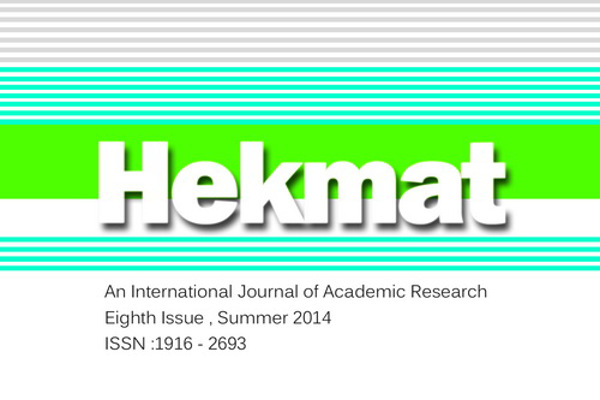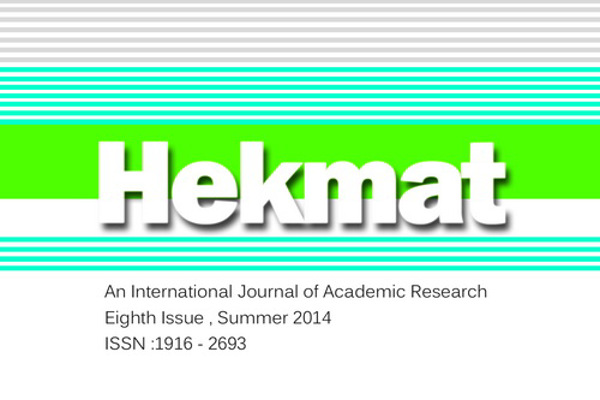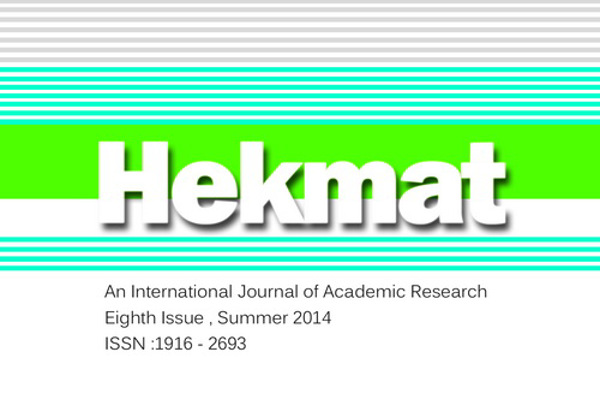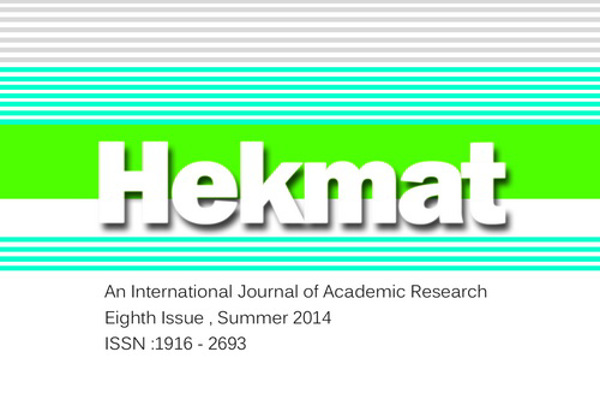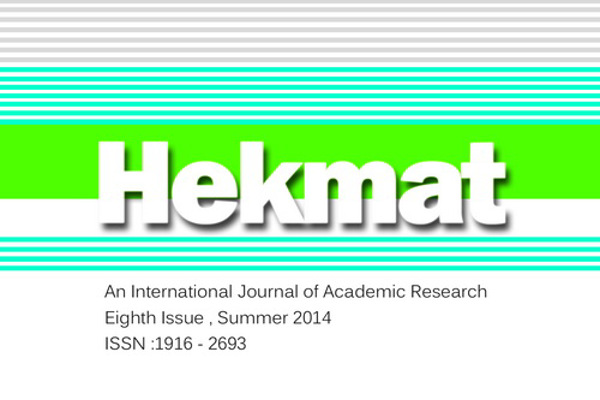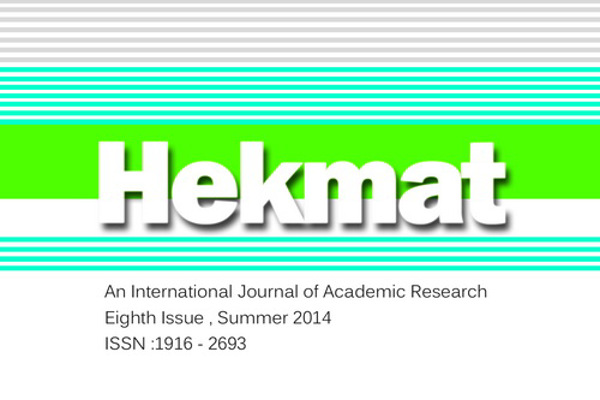Divine Religions and Peaceful Coexistence / By: Mohammad Mahdi Kariminia PhD
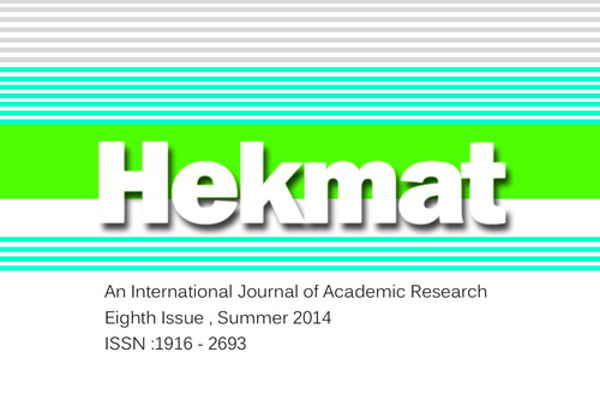
Introduction
In international relations, the notion of peaceful coexistence denotes a particular kind of relations among countries with different social and political setups that implies respect for the principles of national sovereignty, equal rights, territorial integrity for all countries irrespective of their size, non-interference in the domestic affairs of the other nations, recognition of nations’ right to self-determination, and settlement of international disputes through negotiation[1]. In other words, the principle of peaceful coexistence covers two aspects; a) it refers to the clauses of the general international law pertinent to friendly relations among nations, reciprocal recognition, equality in rights, non-interference and peaceful settlement of disputes[2]; b) it refers to the provisions in private international law relevant to the recognition of religious and ethnic minorities living under a government, respect for their rights and freedom of belief and religious practice[3].
Our central question in this paper is this: what is the view held by the three religions of Islam, Christianity, and Judaism regarding coexistence with the followers of other faiths? Do they recognize peaceful coexistence as a fundamental right? Are they prepared for tolerating other religions’ followers on the basis of some common grounds they share?
States are in dire need to security in the modern world. Security can be best guarded via peaceful coexistence among nations. International law sees into it that paths are paved for the establishment of world peace and stability. Despite the fact that the establishment of global peace is not an easily available objective, the efforts put into it are praiseworthy. Relations among people can be made immune to risks and dangers if they are initially set up rationally, logically, and fairly. Any school that can introduce the fairest criteria for regulating human relations will be counted as the most successful.
We shall cast a glance at the positions held by Christianity and Judaism, and discus in more length the views held by Islam. The novelty of this study may be stated in three respects; the comparison of the three religions from this angle, the exploration of the Islamic stance on the issue which will turn out to be avant-garde even in comparison to contemporary international law, and finally the introduction of new notions needed after the establishment of a state branded Islamic. The victory of the 1979 Islamic revolution in Iran was a unique event that put the experience of a modern religious regime to test. The success of this experience highly depends on proving efficient in respect to domestic and international issues which in turn requires advanced theorizing and sometimes founding guiding principles that show the way out of bottlenecks. Among these vital questions is that of how to formulate the general principles of foreign policy. In particular, the Islamic state must produce its doctrine on the foundations of international relations. How should the relations to non-Islamic states be conceived? Should they be based on conflict and hostility or on tolerance and pacifism? One important question we shall try to answer in this paper is this: is it correct that Islam favors violence or is it a mere false accusation?
The French philosopher and thinker Montesquieu and some other authors hold that Islam advanced by sword. He writes, in his magnum opus “the Spirit of Laws*”, “it is unfortunate of man that whenever conquerors triumph, they impose their faith on people by force. Islamic religion was imposed by sword since it was initially grounded on power and compulsion thereby bringing misfortune for people.”[4] He is not the only person to level such false accusations; the majority of Western orientalists did the same. We shall show in this research that impartial examination of historical evidence and religious texts inclusive of the Koranic verses and traditions of the founding fathers of Islam proves that the principle of peaceful coexistence is recognized by Islam as a fundamental value and that Islam appeared far vanguard in the field compared to the other two Semitic religions.
Gustav Le Bon believes that the reason why Christian population of territories conquered by Muslims converted to Islam lies in the fact that they found the new rule fairer than what they had experienced before because they lived under tyranny and oppression[5]. He also believes that the religious tolerance observed in Islam can hardly be seen in Christianity and Judaism[6]. Since the structure of the relation between the Islamic state and other states involves the prestige of Muslims and other nations judge them accordingly, it is important to formulate the Islamic approach to foreign policy with utmost care and precision.
Judaism
Judaism is an important and very old religion dating back to more than 2500 years. Jews consider themselves the followers of Prophet Moses. They are also called the Israelites after Prophet Jacob who was also named Israel.
The Old Testament is the name of their sacred book composed of the Torah* and some other texts. The Torah consists of five parts in which the stories of creation, of man on the earth, of other creatures, of some early prophets, of Moses’ life, and of Semitic tribes are told and the Sharia of the religion is explained. The other holy texts include the history of the Jews written by authors after Moses, and the biography of the ensuing prophets and kings and ethnic groups that developed later. Only the five books of the Torah are considered by Jews as heavenly books. The rest are acknowledged as story books. There are reasons to believe that even the five books are not revelation from the Heaven. They are rather written by men after the demise of Prophet Moses. The story of Moses’ death, funeral, burial, and the events afterward are included in these books especially in the book of Tathnieh. This is clear witness to the fact that the text is written after the demise of Prophet Moses[7].
International Relations according to Judaism
Many ancient peoples like Romans and the Greek believed in their ethnic superiority over other nations. The Jews shared this opinion with them. They thought of no other nation as equal to them in rank. As a result, Judaism as a religion became an ethnic faith. The original Jews considered Judaism the religion of their tribe exclusively. They did not call other people to this creed as a result and considered new converts as subordinate to them. This is one point where Judaism conflicts with modern international law. Racism and exploitation of others as subordinates go against the accepted norms of behavior at our time. Evidence for racial bias in Judaism can be gathered from the Jewish sacred texts as well as the Islamic.
The Koran on Racism among Jews
According to the Koran, the Jews of the early days of Islam displayed their racist bias through queer claims which the Koran challenges and condemns. It is described in various places in the Koran several times. The Koran counts it as a weakness point and warns Muslims about adopting a similar attitude. At times, the Jews claimed to be the especial friends of God[8]. Sometimes, they declared themselves as the children of God[9]. They also claimed a particular supremacy over all others because of an exclusive position they enjoyed; Paradise is exclusively theirs and even their sinners will eventually be saved after serving a short period in Hell as punishment.[10] They believed that eternal salvation is not the result of an individual’s efforts in life but their blood relation to Abraham alone.[11] Responding to their claim that only they enjoy Divine reward in the hereafter, the Koran challenged them why they did not long for death so that they attain Divine bounty exclusively reserved for them sooner[12]. Belief in racial discrimination is considered as an embodiment of polytheistic thought from Islam’s view hence so much emphasis on the precept that all human beings descend from common parents; Adam and Eve. It is this idea that paves the way for calling to piety as the sole parameter for social rank and basis of discrimination.
The Stance of Jews toward Islam in the Early Days
In its advent, Islam progressed fast and amazingly through the establishment of a society based on fraternity and solidarity on the line preached by the holy Prophet. This appeared to Jews of the time as a source of threat to their social prestige and interests. Thus, they reacted in different forms of sabotage. The Koran reveals their malicious intentions in different verses warning Muslims. Some of the measures they took to resist Islam’s call are as follows:
In order to stop the wave of conversion to Islam, the Jews of Medina decided to put the new converts under economic pressure. They revoked all contracts they had with them and even refrained from paying their debts or returning their mortgages back to them under the pretence that the contract had been entered into before their converting to Islam so it was now null and void because of conversion. This move meant to prevent new conversions[13].
Another step taken by the Jews was to sabotage the peace treaty between two warring tribes of Yathrib; the Aws and the Khazraj mediated by the holy Prophet. A Jew called Shas bin Qeis conspired to make the belligerent sides return to fighting. The plot was foiled by the intervention of the mediators[14].
Motivated by jealousy, not only did the Jews refrain from harkening to the call of Islam but they also tried hard to prevent others from doing so and made every effort to force new converts to give up their faith. The Koran enjoined Muslims to react not by retaliation but via tolerance and forgiveness[15].
The Jews’ Reaction to Early Christians
Considering themselves as a nation chosen by God, the Jews saw it legitimate to torture the followers of other faiths. History tells us that the first holocaust was committed by them against early Christians when they throw a large number of people to a dungeon and burned them alive just because they had converted to Christianity[16]. John Naas says that despite the Christians’ efforts to show good intentions, they were treated with hostility by the Jews[17]. The Bible relates stories that speak about their hostility towards Jesus Christ[18].
Christianity
There are over a billion people in the world who believe in Christianity. This religion emerged around two thousand years ago with the appointment of Jesus Christ as a prophet. There are many verses in the Koran about Christ. Professor Mohammad Hamid Allah says that the early teachings of Christianity empathetically rejected every form of violence. Christians were asked not to resort to force even in defense. They should not expect the state to defend them against tyranny and injustice by the exercise of power.[19]
However, as the time passed and the situation changed, Christians gradually adopted more mundane an attitude under the influence of foreign pressures on them. This culminated in the bloody wars they waged later on known as the Crusades. At one time, the Pope ordered all the treaties signed with Muslims declared null and void.
There are references in the Koran to some Christians who claimed to be chosen as the children of God hence their superiority over all other nations. The Koran counters them saying: “Nay, thou art just human beings like others created by God[20].” “They said that no one shall step into the Paradise unless they are Jewish or Christian. This is but their whim; tell them: produce your evidence if you tell the truth”[21]. The Bible abounds with precepts enjoining affectionate treatment of enemies. Jesus ordained that we should love not only our friends but also our foes[22]. Yet, the historical realization of this faith in the form of civilization does not embody this precept fully. Yet, history tells us that Christians have been more tolerant to the followers of other faiths than Jews were.[23] Despite this fact, there are instances of religious discrimination against Jews by Christians. For example, the Pope Nicolas IV ordered the prosecution of anybody suspected as believer in Judaism in Christendom in 1415. As a result, over three hundred thousand Jews were massacred and many fled to Italy and Turkey[24].
Religious intolerance in Christendom also assumed a sectarian dimension. From 1183 to 1834, the official inquisition courts in Spain condemned tens of thousands of Christians accused of heresy to death. People were forced to submit to official beliefs. The Middle ages are nicknamed the Dark Ages because of this fact. The sixth Pope described religious freedom as “horrible rights” in his message dated March 10th, 1791. It was in 1963 that John Paul 23ed eventually declared his acknowledgement of the right to freedom of faith stated in human charter[25].
To be fair, we should add that Divine religions including Judaism and Christianity never promoted the notion of violence or injustice. But in their name, much injustice has befallen man, bloody wars have been waged, and tyrannical rules established.
The Koran gives the name “Islam” to all Divine faiths. It considers the religions of Abraham, Noah, Moses, Jesus, and Mohammad as one single faith implying that the differences among them are not essential but only superficial. Thus, the practice of the followers of these faiths must not be attributed to the founding fathers. They were mostly under the influence of external elements such as gradual diversion due to distance from the original leadership. Religious intolerance is no exception.
Islam
As a religion, Islam introduces teachings and rules of conduct not confined to personal affairs only. It includes precepts with social, economic, political, and ritual dimensions too. It addresses everything human beings need for their prosperity in this life and for salvation in the hereafter. So, it attends to human relation to God, society, state, other nations, and to other fellow human beings. As the final and eternal religion God has chosen for mankind, it has naturally addressed the question of religious coexistence [26].
Peace and coexistence among followers of different religions is a value and an ideal goal in Islam. Peace is not pursued as a means to an end but as a goal in itself. It is a prime objective because human nature is so constructed that his development and progress towards perfection requires a peaceful condition of life.
The Islamic Theory in regard to Coexistence
To understand Islam’s theoretical stance toward coexistence, we need to consult first hand Islamic sources; the Koran and traditions of the holy Prophet and Imams. A common mistake in this regard is the approach adopted by some authors who infer, based on the analysis of the historical performance of Muslim rulers, that Islam rejected the principle of coexistence. Indeed, there is an inconsistency between Islamic teachings and the historical realization of these teachings overlooked by these authors.
The Koran on Coexistence
In several places, the Koran enjoins peaceful coexistence among different faiths and warns against insulting other religions. It criticizes some Jews and Christians who kept the flames of religious animosity burning for this behavior: “and the Jews said Christians believe in nothing notable and the Christians said that Jews follow nothing notable while they all read the Holy Scripture”[27]. In reaction to this religious prejudice, the Koran invites to common grounds: “Say, O people of the book, let us join together on the basis of a common word; to worship no one but God, to take no partner to Him, to refrain from submission to the rule of anyone as a master but God. If they refused, then tell them: witness that we are Muslims”[28].
In addition, the Koran recognizes the freedom of faith and thought. It announces, “There is no compulsion in faith; verily, the insanity is distinct from sanity”[29]. The Koran forbids that people be forced to conversion: “If thy Lord had wished, all the inhabitants of the earth would have accepted the faith; is that thee who can force them to become believers?”[30] It plainly indicates that belief in God and conversion to Islam cannot but go through such free thinking and understanding that penetrates one’s soul and convinces one’s mind.
Refusal of Racism in the Koran
The Koran declares, “O people, we have made you from a male and a female and divided you to different nations and tribes in order that you may recognize each other; verily, the more pious among you are more respected in the eyes of God; verily, God is knowledgeable and aware”.[31] Belief in human equality forms a fundamental pillar of coexistence. Racism and contempt for other religions and peoples have triggered unspeakable problems for humanity throughout ages. An outstanding example is the eruption of the first and second world wars. The racial differences among people are meant to facilitate their socialization only[32].
Addressing humanity, the Koran starts several verses with phrases such as “O people” or “O children of Adam”. This indicates that the Koran believes in a single origin for humanity and unitary sense for humanness. In spite of differences among people in color, race, tongue, and otherwise, the Koran acknowledges their common ancestors, Adam and Eve[33], emphasizing that no discrimination between two persons are acceptable on these bases.
The Koran and Peace Offer
The Ashjaa clan headed by Masud bin Rojailah came to Medina in a seven-hundred-men-strong army offering a peace treaty to the Prophet. He welcomed the offer and sent them a voluble gift. This Koranic verse was then revealed: “… then, if they withdraw and refrain from fighting against you and offer peace, God forbids that you harm them in any manner”.[34]&[35]
Sayings of the Immaculate Prophet and Imams
The first saying is by His holiness Prophet Mohammad: “Whosoever bothers a zimmi (i.e. a non-Muslim party to protection treaty) provokes my wrath against himself and I shall express my wrath on the Reckoning Day”[36]. The second hadith is narrated by ibn Abbas: “Give alms to the poor who follow one faith whichever”[37]. The third saying belongs to Imam Ali (A). It is a part of His letter to Malik Ashtar: “You ought to entertain heartfelt affection for all subjects of your rule; to treat them lovingly and graciously. Never behave like a beast hunting a prey intending to eat them. For, all the people under your rein are either your brothers in faith or fellow human beings”[38]. Elsewhere, He writes in the same letter: “Never refuse the offer of peace by your enemy when it is acceptable to God; for, it brings comfort to your army[39], security to your country, and peace of mind to you”[40].
Studying these verses and sayings reveals that Islam considers peaceful coexistence with non-Muslims and friendly relation with them as a principle in foreign relations. Since Islam is a religion founded on human natural dispositions, it always respects human natural feelings. Hence, it calls to respect for justice, fairness, and rights of others, and forbids insult to followers of other creeds so that serene and friendly atmosphere prepares the ground for rational dialogue with opponents.
The Practice of the Immaculate Prophet and Imams
The holy Prophet of Islam attached much importance to tolerance and friendly conduct both in His domestic and foreign policies. The Koran hails His good-temperedness and considers it the secret in the progress of His Divine mission[41]. He is an example for humanity to follow in all His patterns of behavior whether in personal, social, political, cultural, or international domain.
The Practice of the holy Prophet
We shall focus on three aspects of His practice here; the letters He sent to other leaders, peace treaties He signed, and His pacific personal conduct.
The letters
There are 185 letters[42] available to us, from among which the holy Prophet wrote to kings, emperors, leaders of tribes and nations as well as religious personalities of the time announcing His Divine mission and inviting them to Islam. These letters are witness to the fact that Islam advanced by logical preaching rather than force. These letters contain advices, precepts, and information that show He was always ready for compromise to achieve agreement. The majority of letters written to kings and emperors who belonged to one of the heavenly religions include the verse no. 64 of Sura Al-I Imran. An example is the letter to the Roman Caesar:
In the Name of God the Compassionate the Merciful,
From Mohammad the son of Abdullah to Heraclitus the Leader of Rome
Be peace upon whosoever follows the guidance. I write to invite you to Islam; convert to Islam so that you enjoy security and salvation and receive Divine reward twice. If you refuse, then you shall bear the sins of the Arisians [the people of Rome and the laborers] on your shoulder. “Say: O people of the book [i.e. Jews and Christians] come forth around [i.e., let us agree on] a principle we commonly share; to worship none but God, to refrain from claiming partners for God, to avoid taking one another as Lord except God. Then, should they refuse, tell them: Bear witness that we are Muslims”[43].
Peace Treaties Signed by the Prophet
The practical tradition of the holy Prophet narrated by historians indicate that Islam acknowledged the independent identity of tribes, nations, and peoples both within the boundaries of Islamic territory and without recognizing the right to self-determination and autonomy for them all. In spite of the fact that Islam claimed global mission for humanity, it never tried to undermine or weaken cultural and ethnic diversity. Peace treaties the holy Prophet signed with various belligerent sides and many more ones ratified by His successors bear witness to this fact. In all cases, the Muslim party remained faithful to the treaty as long as the other party did so. Breach of peace treaty is seen in Islam as a sin intolerable and unforgivable[44].
In order to prevent bloody conflicts and hostilities among nations and to foster global peace and coexistence, Islam calls to strict respect for international contracts and treaties and encourages initiatives to broaden the scope of agreements among peoples. Therefore, it makes it obligatory to accept the offer of peace made by the opponents[45].
History tells us that the holy Prophet was always an enthusiastic pro peace activist even before His appointment as a prophet. He called to and brokered several pacts among tribes and clans on the basis of justice and fair contracts. He would repeatedly tell the story of one of the cases: “I was at Abdullah bin Jazan’s house before Islam, witnessing the birth of a convention among the representatives of different Arab tribes to protect the wronged[46]. I was so happy with and attached to the convention that I would never exchange it with anything at any cost. If I am now– after Islam- called to a similar thing I won’t hesitate to accept it”. The holy messenger of Islam took pleasure in foretelling the peace treaty Muslims were to sign with Romans decade after His demise: “The Romans shall offer you a peace treaty that will guaranty your security,” He anticipated”[47].
During His lifetime, the holy Prophet concluded a number of treaties and cooperation agreements. It goes beyond the limits of this paper to describe them all. To note only a few, the Hudeybiah treaty, the pact with Christians of Isla and Sine Peninsula and the multilateral Medina Charter are the most famous ones. The latter was a defense contract among three parties; Muslims, the Jews, and the polytheists of Arabia peninsula[48].
Pacific Treatment of Opponents by the holy Prophet
Mecca was the strong hold of polytheists. Islam rose in that region. So, the Islamic mission encountered the polytheists in the first place. Islam called to monotheism and belief in Resurrection. The Prophet recited the Koranic verses on people and talked to them rationally. The main purpose was to incite their logical thinking and help them get rid of superstitions.
The first reaction took the form of putting a handful of followers of the new creed under pressure in order to make them give it up. Sumayyeh, the mother of Ammar, is the first woman martyr slain by Abujahl. Yasser, his father, was killed too. Bilal was tortured by Umayyeh under the burning heat of Arabia noon sun. Torture made the fragile little circle of Muslims flee and take refuge in Ethiopia. Even there, Quraysh polytheists chased them trying to receive an extradition order from authorities. The Prophet took refuge in the town of Ta’if but for no avail. Economic and political pressure and boycott mounted to unbearable levels. He decided to immigrate to Medina after learning about an assassination plot hatched so skillfully that forty tribes and clans were to share the crime so that no revenge would be possible.
The second phase of animosity towards Islam started as soon as the Prophet settled in Medina. Wars were waged the most famous of which are Badr, Uhud, and Ahzab. But Muslims survived. When the Prophet was escaping to Medina, He felt sad for leaving behind everything dear to Him for good. However, God promised Him that He would return in triumph. Soon, the time came for the promise to be fulfilled. After the Hudaybiah peace treaty with polytheists of Mecca was breached by them unilaterally, the ten-thousand-strong-men Muslim army marched to Mecca and occupied the city without fight. Although one of the officers named Saad repeated the slogan “today is the day of battle, the day of revenge, and the start of misery for the Quraysh”, the Prophet ordered another slogan to be chanted: “today is the time of mercy and the time when God bestows honor on the Quraysh”. The general amnesty the holy Prophet declared for the population of Mecca after its conquer displayed the real intentions of Muslims and attracted the majority of the ex foes to Islam[49].
The Prophet’s Peaceful Treatment of the Jews
The three famous Jewish tribes in the Arabian Peninsula were Baniquraizah, Baniqinqaa, and Baninathir. They lived in the vicinity of Yathrib. After the Prophet’s immigration to Yathrib, He brokered a multilateral treaty the parties to which were Aws, Khazraj, and the Jews. Under the treaty, Jews were to freely live and work in Yathrib, participate in any defense activity, and refrain from any act hostile to Muslims. As Islam gradually advanced, some people including part of the Jewish community felt anxious. When Abdullah bin Salam, a grand Jewish cleric, and Mukeiriq, another famous Jewish personality, converted to Islam, Jewish tribes were outraged. Their cooperation with Muslims began to diminish. At times, they committed slight breaches of the treaty.
Jews enjoyed absolute religious freedom in addition to economic and social freedom and security under the treaty. The Prophet announced His mission and called people to His creed but wanted them to choose voluntarily. He advised His envoy to Yemen Amr bin Hazm: “Any Christian or Jewish person who converts to Islam wholeheartedly shall be considered a believer enjoying all the privileges Muslims do, sharing them all the benefits and losses. Whosoever chooses to keep his faith shall be given the right to do so and will not be forced to convert”[50].
The hostile behavior of the angry Jews was tolerated for some time. Instances of breach of the treaty were countered by punishing only the individuals who committed the act. The Prophet pursued His policy of best form of dialogue and avoided insulting other religions or accusing their followers of being infidels.
But the Jews’ reactions went from bad to worse. They involved themselves with counter Islamic activities led by the polytheists of Mecca. They engaged in provocative hostilities in various forms including propaganda aiming to weaken Muslims’ faith, sowing the seeds of discord among various factions of the Muslim nation, and finally plotting for assassination of the Prophet. This led to an outright war that ended in the Jews mass deportation from Yathrib.
The Prophet’s Peaceful Treatment of Christians
According to the Koran, Christians were amicable to Muslims while the Jews and the Mecca Polytheists were not[51]. Christians living in the Arabian Peninsula and the vicinity like Syria welcomed Islam. A great number converted and those who did not, kept their friendly relations and cooperations with the new religion under treaties that guaranteed them full freedom of religion. It is estimated that over 1.5 million Christians lived only in Egypt and half a million elsewhere in Islamic territories during the second Caliph’s rule[52].
Christians living in Najran signed a treaty with the Prophet that stated: “The Christian inhabitants of Najran and the vicinity enjoy full protection by God and His Messenger Mohammad and the right to ownership, security, freedom of faith, economic activity, and possession of property small or big. These rights include both the people present and those who are absent. No bishop, priest, or chaplain shall be removed from office or insulted”[53].
The Practice of the Holy Imams
According to Shiites, the practice of the immaculate Imams is as valid and exemplary as that of the holy Prophet is. Imam Sadiq -be peace upon Him- benefited from all available means and media like dialogue, discussion, correspondence, poetry, public relations, and practical patterns of behavior for educating people and preaching faith. He received opponents of every kind in discussion circles happily. Atheists, polytheists, materialists, and scholars of other creeds presented themselves in discussion sessions at His house. They spoke their minds and produced their arguments. He patiently listened to them and replied them logically. Often, He was admired by the participants in the sessions who confessed to the truth of His posits[54].
The Primacy of Peace or War
There is an important disagreement among scholars as to whether Islam gives prominence to peace or to war so far as the relation with non-Muslims is concerned. One group of orientalists and jurists among Shiites and Sunnites believe that the primary principle in Islamic international law is holy war, that is Muslims should take advantage of every opportunity to suppress their enemy and force them to yield and submit to faith. The well known British orientalist Bernard Luis writes: “Foreign policy, international relations, and other modern political phenomena are all notions alien to the Islamic World that makes infidels convert via holy war. Muslims are charged with a collective obligation to bring others under the control of the Caliph”[55]. Mohammad Khoduri, a Sunni scholar, believes that “the final goal Islam pursues in international relations consists in providing peace and security for treasuries ruled by Sharia and to expand Islamic system of law to all other lands actively converting other nations to Muslims”[56]. Mohammad Jawad Ameli, the Shiite grand jurist and author of the book Miftah al Karamah, writes: “the primary principle and first rule is that it is obligatory to fight”[57].
Two main arguments are put forward by scholars holding this opinion. The first says that the Koran ordains that Muslims ought to keep the light of Jihad burning and Jihad means holy war against infidels. So, the war between Muslims and non-Muslims should go on until all convert to Islam. The second argument reads as follows: the Koran reproaches those who make friends with infidels. So, Muslims must not enter into friendly relations with non-Muslims.
It is worth mentioning that relying on some Koranic verses for issuing fatwa without considering other relevant verses is methodologically wrong. The majority of verses in the Koran calling to Jihad include explanations about the reason for the call. There are other verses that forbid combat except when one is attacked. To reconcile these two groups of seemingly inconsistent verses, we must conclude that waging war is allowed merely as a retaliatory defensive measure. As to the second argument, it is notable that the Koran permits the marriage of Muslim men to non-Muslim women. It goes without saying that marriage bound rests on mutual love and affection and brings about family affinity. The Koran enjoins Muslims to treat non-Muslims fairly so long as they do not fight them. So, it is impossible that God prohibits friendship between Muslims and non-Muslims under every circumstance. Again, to reconcile the conflicting evidences, we must infer that prohibition is limited to cases where such friendship harms Muslims’ interests.
The opposing opinion says that peace and coexistence between Muslims and non-Muslims is the primary rule. Differences in belief and faith cannot justify hostility on its own. Never did the Koran permit killing or prosecuting opponents in faith. On the contrary, it enjoins good, fair, and just conduct and treatment of opponents. Human beings as such enjoy dignity irrespective of their faith. War is but an exceptional remedy only when it becomes inevitable. In the Koran, exceptional circumstances are said to justify war; repulsing invasion[58], eradicating anarchy[59], rescuing the oppressed people[60], defending territorial integrity[61], oppressing those who break treaties, plotters, and war mongers[62].
[1]. Aqabakhshi, Ali, Dictionary of Political Sciences, Tehran, 1374, P.246.
[2]. Kariminia, Mohamad Mahdi, Peaceful Coexistence according to Islam and International Law, MA Dissertation, Imam Khomeini Institute for Research and Higher Education, Qom, 1379, P.32.
[3]. Ibid.
[4]. Montesqew, Ruh al Qawanin, Persian translation by Ali Akbar Mohtadi, Tehran, 1362, P.671.
[5]. Gustav Le bone, Islam and Arab Civilization, Persian translation by Hashem Husseini, Tehran, 1347, Vol.4, P.148.
[6]. Shirazi, Naser Makarem, Tafsir Nemuneh, Vol.2, P.310.
[7]. The Koran, Sura Jum’ah, verse 6: tell to the Jews they should long for death if they truly believe that they are the sole friends of God.
[8]. The Koran, Sura Maedeh, verse 18: the Jews and the Christians said they were God’s children and friends. Tell them why does God punish them for their sins then? You are human beings like others among His creatures.
[9]. The Koran, Sura Baqarah, verse 80: and the Jews said that they won’t be punished in Hell except for a few days. Ask them: have you received any pledge by God? Of course God never breaks His promise. Or you attribute something to God out of ignorance?
[10]. The verses 169 and 168 of the Koran in Sura Aaraf were revealed in denial of these claims.
[11]. The Koran, Sura Baqarah, verse 94, tell them, were the life in the hereafter exclusively yours, you should long for dying if you do not lie.
[12]. Shirazi, Naser Makarem, Tafsir Nemuneh, Vol.2, P.472.
[13]. Verses 98 to 101 of the sura Al-i Imran were revealed describing and condemning Jews seduction and warning Muslims in this regard.
[14]. Ibid., Vol.1, P.398.
[15]. ibid., Vol.26, P.339.
[16]. The Koran, Surah Buruj, verse 5-8.
[17]. John Naas, the Comprehensive History of Religions, translated by Aliasghar Hekmat, Tehran, 1354, P.371.
[18]. Mathieu, 5: 11- 12, Mathieu , 7: 15 etc. see Ahmad Shebli, Moqaranatol Adyan, Cairo, 1993, P.32.
[19]. Hamidollah, Mohammad, international relations according to Islam, Tehran, 1373, P.135.
[20]. The Koran, Surah Maidah, verse 18.
[21]. The Koran, Sura Baqarah, verse 111.
[22]. The Bible, Mathew, sec.5, s.38, 44.
[23]. The Koran, Surah Maidah, verse 82.
[24]. See Political Asylum, P.38.
[25]. See Mehrpur, Hosein, international Human Right System in Islam, Etelaat Pub., Tehran, 1377, P.319.
[26]. The Koran, Surah Saba, verse 28.
[27]. Amid Zanjani, Political Feqh, Vol.2, P.140.
[28]. The Koran, Surah Baqarah, verse 114.
[29]. ibid., Sura Al-i Imran, Verse 64.
[30]. Ibid., Surah Baqarah, Verse 256.
[31]. Ibid., Surah Yunos, Verse 99.
[32]. Ibid., Surah Hujurat, Verse 13.
[33]. Ibid., Surah Rum, Verse 22.
[34]. the term “ children of Adam” is repeated several times in Koran like Aaraf, 26.
[35]. the phrase “ O human beings” is repeated several times in Koran like Enfetar, 6.
[36]. Yaser Abushababah, Modern International Order and the Islamic Vision, Dar al Islam, Cairo, 1998, P.543.
[37]. The Koran, Surah Nisa, verse 90.
[38]. Makarem Shirazi, Tafsir Nowin, Vol.4, P.54.
[39]. Afif Abdolfattah, the Spirit of Islam, Lebanon, P.274.
[40]. ibid., P.276.
[41]. Nahj al Balaghah, letter 53.
[42]. Ibid.
[43]. The Koran, Surah Al-i Imran, verse 159.
[44]. Ahmadi Mianji, Makatib al Rasul, Beirut.
[45]. Ibid., Vol.1, P.100.
[46]. Daftar hamkari howzeh w daneshgah, Vol.1, P.399.
[47]. Moadikhah, Abdolmajid, History of Islam, P.821.
[48]. Majmuah al Wathaeq, P.172.
[49]. Amid Zanjani, Islam and Peaceful Coexistence, P.111.
[50]. Faruq Hammadeh, International Legislation in Islam, Monaco, 1997, P.147.
[51]. Monaha al Amal, Vol.2, P.240.
[52]. Behzadi, Hamid, International Relations Developments in Islam, Journal of Law and Political Sciences, 1351, No.1, P.130.
[53]. Ibid.
[54]. Miftah al Karamah, Vol.7, P.7.
[55]. Amid Zanjani, Political Fiqh, Vol.3, P.379.
[56]. The Koran, Surah Maidah, Verse 5.
[57]. Ibid., Surah Mumtahanah, Verse 8.
[58]. Ibid., Sura Baqarah, Verse 190.
[59]. Ibid., Sura Baqarah, Verse 193.
[60]. Ibid., Surah Nisa, Verse 75.
[61]. Ibid., Sura Haj, Verse 39.
[62]. ibid., Sura Towbah, verse 13.


